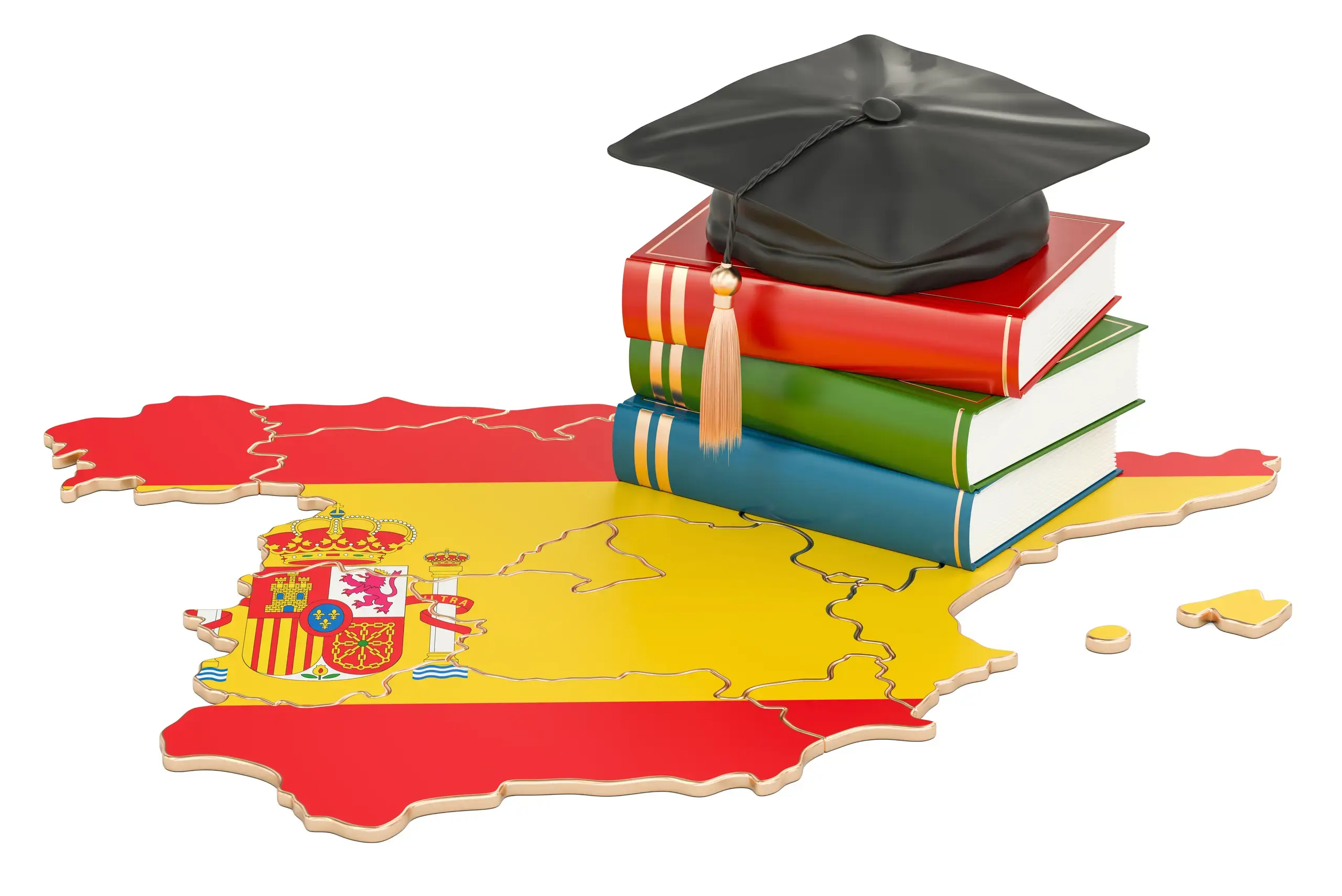As the global educational landscape continues to evolve, universities are confronted with the challenge of revising undergraduate curricula to align with the rapidly changing dynamics of the workplace, driven by technological advancements and the increasing integration of multidisciplinary approaches. The need to prepare students for a future shaped by artificial intelligence (AI), automation, and the reorganization of workplaces is becoming more urgent. In the context of undergraduate education, revising the curriculum is particularly important to ensure that graduates are equipped with not only foundational knowledge but also the skills needed to thrive in a dynamic and complex global job market. This academic discourse will explore how institutions, particularly those offering a Bachelor program in Spain, are addressing these challenges by leveraging technology, reorganizing learning and work environments, and fostering interdisciplinary learning.
Colleges and universities are facing numerous challenges, but two stand out as existential threats: shrinking student populations and the rise of artificial intelligence. With fewer students due to demographic shifts, institutions will have to offer larger discounts (leading to reduced revenue) and invest in better facilities (increasing debt) to attract applicants. The combination of declining revenue and mounting debt will force cost-cutting measures, including layoffs, salary freezes, greater reliance on part-time faculty, and cuts to benefits, creating a tough cycle for higher education institutions.
Curricula update of Bachelor program in Spain
The revision of undergraduate curricula, driven by evolving technology, reorganization of workplaces, and the emergence of multidisciplinary programs, is a vital shift that many institutions, especially those such as C3S Business School offering a Bachelor program in Spain, are embracing.
Leo Irakliotis, an education trend analyst, says: ”Artificial intelligence is a labor cost-saving measure. AI tutors will be less expensive than faculty. In some cases, they may even do a better job. I would not be surprised to see businesses offering AI-based college-level education in the next two years.”
Colleges will endure by adapting to new realities and evolving to meet them. Two potential strategies for transformation involve focusing on post-traditional students and embracing hybrid models. Post-traditional students are those looking to return to college—some aiming to finish a degree they began earlier, others pursuing their first degree after working or starting a family post-high school. While many institutions claim to cater to these students through continuing education and adult programs, in reality, most fall short of effectively meeting their needs.
According to Prof Philip Mayer, a London-based faculty at Regent’s University London, “Universities today must adapt their teaching methods and course offerings to meet the demands of an increasingly digital and interconnected world. Students need to be equipped with skills that go beyond traditional academic knowledge.”
This sentiment is echoed by Dr P. R. Datta, executive chair of the Centre for Business & Economic Research (CBER), who adds, “The reorganization of workplaces due to technological advancements, such as AI and automation, has created a demand for graduates who are not only knowledgeable in their specific fields but can also navigate interdisciplinary challenges and manage remote teams.”
Similarly, Dr Rajat Baisya, a global management consultant and former dean of IIT Delhi, highlights the need for flexibility in education, adding, “Universities must ensure that their curricula are agile enough to adapt to the ever-changing demands of the global marketplace.”
The curriculum revisions at C3S also reflect the growing trend toward micro-credentials and specialized certifications. Dr Aida Mehrad, head of academics at C3S Business School in Barcelona, adds, “Micro-credentials allow students to focus on specific, in-demand skills that they can apply immediately in their careers. This is particularly relevant in our Bachelor program in Spain, where students have the flexibility to tailor their education to their professional goals.”
The Evolving Role of Technology in Bachelor Program in Spain
Technology has been a major driver in reshaping undergraduate education, and its role continues to expand as digital learning platforms, AI, and virtual learning environments gain prominence. In the context of undergraduate curricula, universities are increasingly incorporating technology to provide students with practical, future-ready skills. A significant transformation can be observed in the way technology is integrated into Bachelor programs in Spain, particularly in business, healthcare, IT, and engineering disciplines.
For instance, C3S Business School in Barcelona has begun to incorporate AI-based learning platforms into its business programs. These platforms allow students to simulate real-world business challenges in a controlled environment, giving them hands-on experience in problem-solving without the associated risks of failure. This approach is particularly beneficial for students in the Bachelor program in Spain who are preparing for careers in international business or management. By embedding AI technology into the curriculum, C3S is fostering a more interactive and engaging learning environment.
Furthermore, the use of AI-driven tools for personalized learning has been gaining traction across higher education institutions in Spain. For example, AI algorithms can analyze student performance in real-time and recommend personalized study paths, helping students focus on areas where they may need additional support. According to a 2022 report by the European University Association, approximately 30% of universities in Spain have already adopted some form of AI-driven educational tools, and this figure is expected to rise in the coming years. This shift is reflected in many Bachelor programs in Spain, where the adoption of such technologies enhances not only the learning experience but also prepares students for the increasing use of AI in the workplace.
Professor Mani Tahriri, IT faculty at C3S Business School, adds, “Technology is central to all modern businesses, and our students need to understand its role in different sectors. That’s why we’ve embedded courses on digital literacy, AI, and data analytics across various programs, including our Bachelor program in Spain.”
According to Ian Nisbet, Principal and Director of the Online MBA program at the London College of Business, “The leading business schools across geographies have successfully embraced the integration of technology in its curriculum, which is crucial for preparing students for a digital economy.”
Reorganization of Workplaces and Its Impact on Curriculum Design in Bachelor Program in Barcelona
In addition to technological advancements, the reorganization of workplaces has significant implications for the design of undergraduate curricula. As industries undergo structural shifts due to automation, remote work, and the gig economy, universities must adapt their curricula to ensure students are prepared for these new work environments. This is particularly evident in business and management programs, where the need for flexibility and adaptability is paramount.
In response to the changing nature of work, C3S Business School has reorganized its undergraduate business programs to focus more on entrepreneurship and remote work management. In their Bachelor program in Spain, for example, students engage in courses that explore the dynamics of managing teams remotely, digital project management, and the challenges of leading a distributed workforce. This shift aligns with broader industry trends, where companies are increasingly moving toward remote work models and freelancers now make up a significant portion of the workforce.
Real-life examples of workplace reorganization influencing curriculum design can be seen in the technology sector. Companies like IBM, Google, and Microsoft have restructured their work models to accommodate remote work and a more flexible project-based system. To mirror these changes, many Bachelor programs in Spain now emphasize the development of soft skills such as communication, collaboration, and emotional intelligence—skills that are essential in remote and hybrid work environments.
Additionally, the reorganization of workplaces has also led to the rise of micro-credentials and short courses, which are increasingly being integrated into undergraduate programs. These courses allow students to develop specific, job-relevant skills that can be immediately applied in the workplace. Many universities offering a Bachelor program in Barcelona are incorporating these micro-credentials into their curricula, providing students with the flexibility to pursue specialized areas of interest alongside their degree programs.
At C3S Business School, the revision of the undergraduate curriculum also involves strong industry partnerships to ensure that students are prepared for the workplace. As Hiren Raval, CEO of C3S Business School, explains, “We are committed to providing students with practical, real-world experiences that complement their academic learning. By collaborating with businesses, we ensure that our graduates are job-ready and competitive in the global market.”

The Emergence of Multidisciplinary Programs in Bachelor Program in Spain
Another critical aspect of revising undergraduate curricula is the increasing importance of multidisciplinary education. As industries become more interconnected and complex, the demand for graduates who can integrate knowledge from multiple disciplines is rising. In response, many universities, particularly those offering a Bachelor program in Spain, are moving away from traditional, siloed approaches to education and instead promoting interdisciplinary learning.
At the heart of this shift is the recognition that the challenges of the 21st century require solutions that draw from various fields of study. For example, climate change, healthcare innovation, and digital transformation all require expertise in multiple disciplines. In recognition of this trend, C3S Business School has redesigned its undergraduate programs to emphasize interdisciplinary collaboration. In their Bachelor program in Barcelona, students are encouraged to combine knowledge from business, technology, and social sciences to address complex problems in areas such as sustainability, social entrepreneurship, and innovation management.
In terms of interdisciplinary collaboration, Dr. Maria Fernanda Dugarte, dean and director of Institutional Affairs at C3S Business School, emphasizes the importance of cross-disciplinary projects: “Our students regularly work on projects that require input from multiple fields, such as business, technology, and social sciences. This prepares them for the complexities of the modern workplace.”
One notable example of interdisciplinary learning can be found in the healthcare sector, where the integration of technology and business skills is becoming increasingly important. Universities offering a Bachelor program in Spain in healthcare management now include courses on digital health technologies, data analytics, and financial management, allowing students to develop a broader skill set that prepares them for leadership roles in the healthcare industry.
Moreover, the concept of interdisciplinary learning is further reinforced through collaborative projects that bring together students from different academic backgrounds. For instance, C3S’s Bachelor program in Barcelona offers opportunities for students to work on joint projects with peers from other disciplines, such as computer science, engineering, and marketing. These projects simulate real-world scenarios, where professionals from diverse fields must collaborate to solve complex challenges.
Michael Taylor, Registrar at the London College of Business, adds, “Many universities and business schools have recognized that the most pressing issues of our time, such as sustainability and digital transformation, require knowledge from multiple disciplines. The inclusion of interdisciplinary courses in their curriculum is a forward-thinking move.”
It is widely found that the undergraduate students expressed a preference for programs that offer interdisciplinary learning opportunities, indicating a strong demand for curricula that go beyond traditional subject boundaries.
Real-World Examples of Curriculum Revisions in Bachelor Program in Barcelona
Several universities around the world have made significant strides in revising their undergraduate curricula to incorporate technology, reorganized workplace dynamics, and multidisciplinary learning. For example, Stanford University in the United States has introduced the “Stanford 2025” initiative, which emphasizes the integration of technology, design thinking, and entrepreneurship across all its undergraduate programs.
Closer to home, C3S Business School in Barcelona has implemented innovative changes in its Bachelor program in Spain by integrating real-world projects, industry partnerships, and technology-driven learning platforms. These changes are designed to provide students with a competitive edge in an increasingly digital and interdisciplinary job market.
Challenges and Opportunities in Bachelor Program in Spain
While revising undergraduate curricula to meet the demands of evolving workplaces and technological advancements presents numerous opportunities, it also poses several challenges. One of the primary challenges is ensuring that faculty members are equipped to teach using new technologies and interdisciplinary approaches. Universities must invest in professional development programs to help educators adapt to these new paradigms.
Moreover, the rapid pace of technological change means that curricula must be continuously updated to remain relevant. Universities offering a Bachelor program in Barcelona must be agile and responsive to emerging trends in industry and technology. This requires strong partnerships with businesses and industry leaders to ensure that educational programs are aligned with the skills and knowledge that employers are seeking.
Despite these challenges, the revision of undergraduate curricula presents a unique opportunity to create more dynamic, inclusive, and future-oriented educational experiences. By embracing technology, rethinking workplace organization, and fostering interdisciplinary learning, universities can better prepare students for the complexities of the modern world.
Concluding the Essential Curriculum Changes in Bachelor Program in Spain
The revision of undergraduate curricula in response to evolving technology, the reorganization of workplaces, and the emergence of multidisciplinary programs is essential for preparing students for the future of work. In Spain, universities offering a Bachelor program in Spain and a Bachelor program in Barcelona are at the forefront of this transformation. By integrating AI, VR, and personalized learning tools, adapting curricula to reflect the changing nature of work, and promoting interdisciplinary collaboration, institutions like C3S Business School are ensuring that their graduates are well-equipped to thrive in a rapidly changing global job market.
As technology and industry continue to evolve, the need for agile, forward-thinking educational institutions will only grow. For students seeking a Bachelor program in Barcelona, these curriculum revisions represent a vital step toward gaining the skills and knowledge needed to navigate the complexities of the modern workplace and emerge as leaders in their respective fields.




